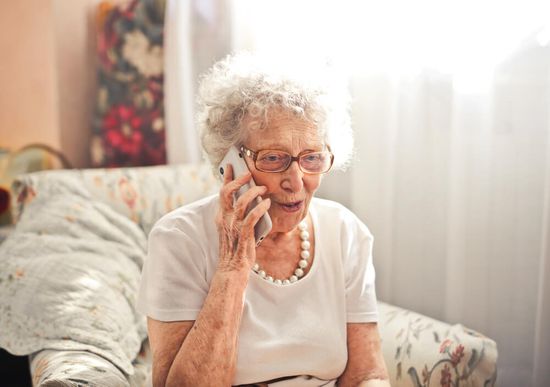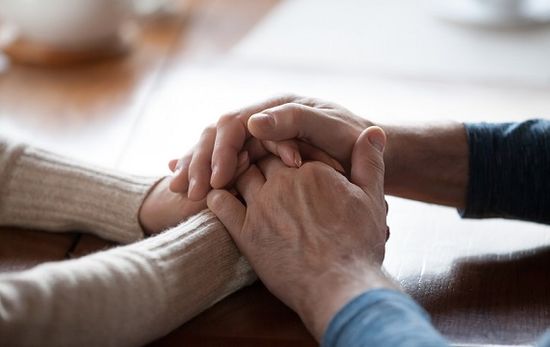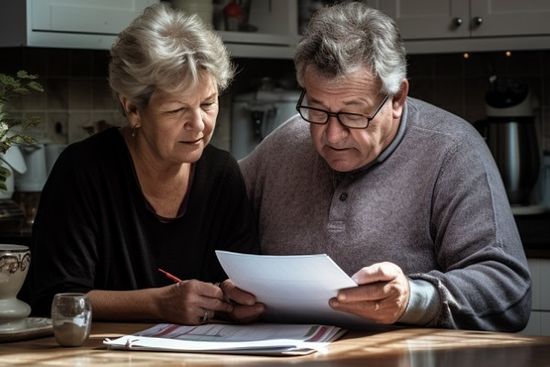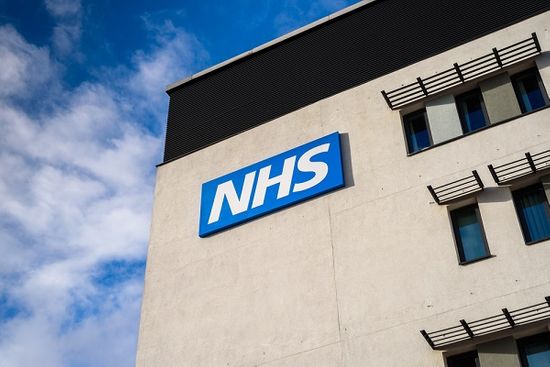The immediate aftermath of a sudden loss can be confusing and sorrowful. It can be challenging to focus on practical matters while dealing with grief.
Nonetheless, taking certain steps can help manage legal, financial, and emotional aspects properly, honouring your loved one's memory and facilitating a smoother process for all involved. This guide aims to be a compassionate companion, assisting you through tough times with care.
After an unexpected death, initial steps include:
These tasks may appear overwhelming, especially amidst shock and grief. Our guide simplifies these steps into manageable actions, offering clarity during this challenging time. We'll guide you on whom to contact first, handling necessary paperwork, and initiating funeral planning that respects your loved one's wishes and legacy.
Besides aiding you in the early stages, this article will also address seeking emotional and practical support. Grieving is personal, but you don’t have to face it alone. We'll present emotional support resources and practical assistance, aiding in estate matters and personal healing.
Remember, navigating grief and responsibilities requires time and patience. You don’t need to have everything figured out immediately.
In the wake of a sudden loss, taking the first step might seem daunting. Here is a brief list of who to contact first:
The following section aims to guide you through the initial actions necessary in the early days following your loved one's passing. These steps are designed to help you manage the pressing legal and personal tasks that need attention, offering a pathway through the fog of grief with compassion and understanding.
If the person has just passed away and it's a medical emergency, call 999 in the UK immediately. Emergency services will guide you through the initial steps and confirm the death. A doctor or qualified medical professional must officially certify the death, which is a necessary step before any further arrangements can be made.
If the death was unexpected and did not occur in a hospital, you should inform the police by calling 999.
The police are required to attend unexpected deaths to determine if a coroner's investigation is necessary. The coroner (or procurator fiscal in Scotland) may become involved to establish the cause of death, and this may include arranging a post-mortem examination or inquest.
These procedures are standard and aim to provide clarity and ensure all legal requirements are met. The authorities will guide you through this process with sensitivity and support.
After a death is officially pronounced, you will need to contact a funeral provider.
Providers like Distinct Cremations offer compassionate and professional services to assist in transporting the body and arranging a funeral that honours the life of your loved one. Here are some factors to consider when selecting a provider:
In the aftermath of a loved one's unexpected or sudden death, the responsibility of making funeral arrangements while navigating through grief can seem incredibly overwhelming.
This section is designed to gently guide you through the process of organising a respectful and fitting farewell, including tips on choosing the right service provider, understanding different funeral types, and making informed decisions during this difficult time.
Deciding between burial and cremation is a deeply personal choice, influenced by religious beliefs, cultural traditions, environmental concerns, and personal preferences. Burial is often chosen for its traditional aspect and is encouraged in many religions.
Cremation, on the other hand, may be selected for its flexibility, allowing families to keep the ashes in an urn, scatter them in a meaningful location, inter them in a permanent resting place or even incorporate them into memorial objects. You may like to choose a traditional cremation, or something more simple like a direct cremation or an attended cremation.
Every option has a distinct process, cost, and considerations. It’s important to discuss these preferences with family members and consult with your chosen funeral provider to understand the implications of each choice fully.
If the deceased did not express their wishes, the decision would be left to the next of kin. Distinct Cremations can guide you through the cremation process and discuss various options with you.
Arranging the funeral service involves several steps that can be personalised to honour the life and wishes of your loved one. You'll need to decide on the type of service that best reflects their personality and legacy. This could range from a traditional funeral, with funeral readings and funeral hymns, to a more informal celebration of life. Consider the location for the service, whether it be at a funeral home, place of worship, or an outdoor space that was significant to the deceased. It's also important to think about who will lead the service, whether a religious leader, a professional celebrant, or a family member.
Additionally, you may want to personalise the service with funeral music, photo displays, and tributes that resonate with the life being remembered. Selecting flowers, creating programs, and determining the sequence of events are all parts of the planning process where you can inject personal touches that make the service unique.
Remember, the goal is to create a meaningful and respectful tribute to your loved one, and sharing the planning can also be a source of comfort and support.
If you need to organise a funeral now, we are open 24/7 and will support you with all the arrangements from taking the deceased into our care and completing all the paperwork. Your customer service specialist will liaise with you to make arrangements for the cremation and keep you updated.
Call Now On 01543 211997Navigating the legal landscape after the unexpected loss of a loved one can feel overwhelming. Ensuring all affairs are in order is a critical step in the funeral planning process.
This section provides guidance on essential legal considerations and documents to manage following the death of a loved one.

A death certificate is a legal document you'll need for various reasons, including settling the estate and accessing services. The funeral provider or your local registry office can advise you on obtaining this.
To register the death and obtain the certificate:

In the UK, the Tell Us Once service can help streamline this process. This government service allows you to report the death to most government organisations in one go, including:
To use Tell Us Once, the registrar will provide you with a unique reference number after you register the death.
Additionally, you should notify:

Ensure that the deceased's property and belongings are secure. Arrange to have mail forwarded, pets cared for, and any immediate property concerns (like utilities) managed.
In cases of sudden or unexplained death, a coroner (or procurator fiscal in Scotland) may investigate to determine the cause. This may be necessary if the death was unexpected, the cause is unknown, or if it was violent or unnatural.
The process typically involves a post-mortem examination, conducted by a pathologist, to establish the cause of death. If this examination does not provide clear answers, an inquest may be held as a formal legal inquiry.
These procedures are routine, intended to ensure thorough investigation and provide clarity for families. The coroner’s office will keep you informed, though funeral arrangements might be delayed until the investigation is complete, with the body released as soon as possible.
Coping with the emotional pain of loss is difficult, especially if the death wasn’t expected. It’s important to know that support is out there, and there are many bereavement support groups and counselling services that can help you cope during this time.
The following charities and helplines are there to help those who are recently bereaved:

The emotional toll of an unexpected death can be overwhelming. It's important to seek bereavement support for emotional and psychological well-being. There are many bereavement support groups and counselling services that can help you cope during this time.
Alongside seeking support, practising self-care is crucial during the grieving process. This might involve ensuring you're eating well, getting enough sleep, and taking some time out for activities that bring you comfort or peace.
Whether it's going for a walk, reading a book, or simply sitting in nature, allowing yourself moments of respite can aid in coping with stress and loss.

Remember to take care of your physical health. This means eating well, getting enough sleep, and accepting help from friends and family when offered.
Maintaining connections with friends and family members is also more important than ever. These connections can provide essential emotional support and serve as a reminder that you are not alone in your grief. It can be beneficial to share memories of the deceased, express your feelings, and even share moments of silence.
Sometimes, just knowing that others share your sense of loss can be incredibly comforting. Staying in touch, whether through in-person visits, phone calls, or messages, can make a significant difference in your healing process.
Attending to personal matters in the aftermath of a loss is a crucial step in the grieving process. It often involves handling the logistical and practical aspects that the deceased left behind. This may include executing wills, managing estate affairs, and dealing with any other legal or financial obligations.
While it may feel overwhelming, addressing these responsibilities can provide a sense of closure and help you move forward. In this section, we will explore some key considerations and offer guidance to help you navigate this complex terrain with compassion and care.

Locate the will, if there is one, along with other crucial documents like life insurance policies, financial records (including bank statements, investment portfolios, and retirement accounts), and legal papers (such as property deeds, contracts, and estate planning documents).
It's important to have these documents organised and accessible in case they are needed.

If the deceased had assets, such as property, money, or possessions, the probate process may be necessary to settle the estate. Probate is the legal process of administering the estate of a deceased person, resolving all claims, and distributing the deceased person's property under a valid will.
Engaging a probate attorney can provide you with invaluable guidance to navigate the complexities and legalities of this process smoothly and efficiently.
It's crucial to give yourself the space to grieve and take things one step at a time. Distinct Cremations is here to support you with respectful and dignified arrangements that honour the memory of your loved one.
Whether a direct cremation or a small, intimate farewell, Distinct Cremations can assist in creating a personalised service, from music selections to eulogies and hymns.
Planning a funeral amidst the emotional turmoil of losing a loved one can be overwhelming. Here at Distinct Cremations, we understand the delicate nature of this difficult time and we offer dedicated support throughout the process.
Contact us today or request a free guide to learn more about our services, which include:


As opposed to those who die in a hospice, hospital or care home, at home you won't have anyone to guide you through the process. That’s why it’s important to know what you’ll need to do before that happens.
Find out more
When someone dies in a care home, it’s slightly different to a hospice, home or hospital but the steps you’ll need to take are mostly the same. This article has a step-by-step guide and information on outstanding care home fees.
Find out more
When a loved one dies in a hospital, you’ll likely be made aware that death is imminent and be able to prepare for it although it doesn’t take away the impact of the loss. Here's what you need to do when someone dies in hospital.
Find out moreWe offer the highest level of support, but don't just take our word for it. Below are recent reviews from customers who bought a funeral with us.





